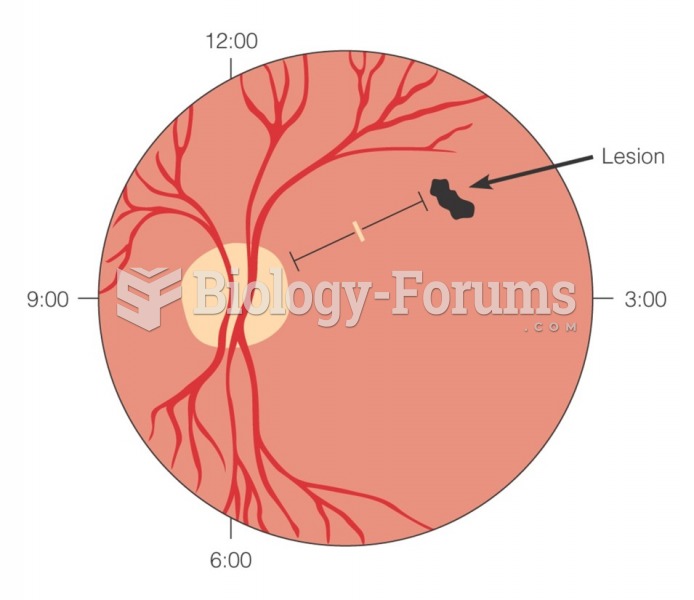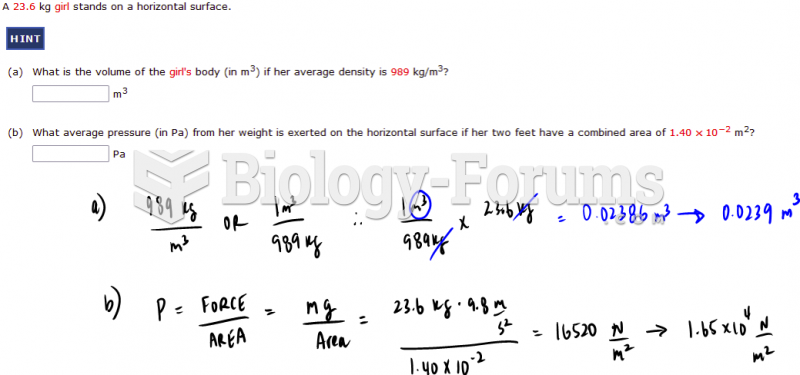Answer to Question 1
B
Feedback
A An increase in the systolic BP of 30 mm Hg or more over the baseline pressure or an increase in the diastolic BP of 15 mm Hg or more over the baseline pressure is a significant finding, regardless of the absolute values. This slight increase in BP does not meet the criteria for concern.
B An increase in the systolic BP of 30 mm Hg or more over the baseline pressure or an increase in the diastolic BP of 15 mm Hg or more over the baseline pressure is a significant finding, regardless of the absolute values. This current BP indicates that such increases have occurred in both the diastolic and systolic pressures.
C Although the baseline BP is worrisome (an absolute systolic BP of 140 mm Hg or higher or a diastolic BP of 90 mm Hg or higher suggests hypertension), the subsequent pressures have decreased, not increased.
D This BP is within normal limits for both values and is not a concern.
Answer to Question 2
4
Rationale:
1. It is important for the nurse to understand the impact of culture on specific feeding practices. Women from Pakistan do not offer colostrum to their newborns. They begin breastfeeding only after the milk flow has been established, which typically occurs on the third to fourth day after birth.
2. It is important for the nurse to understand the impact of culture on specific feeding practices. Women from Pakistan do not offer colostrum to their newborns. They begin breastfeeding only after the milk flow has been established, which typically occurs on the third to fourth day after birth.
3. It is important for the nurse to understand the impact of culture on specific feeding practices. Women from Pakistan do not offer colostrum to their newborns. They begin breastfeeding only after the milk flow has been established, which typically occurs on the third to fourth day after birth.
4. It is important for the nurse to understand the impact of culture on specific feeding practices. Women from Pakistan do not offer colostrum to their newborns. They begin breastfeeding only after the milk flow has been established, which typically occurs on the third to fourth day after birth.







